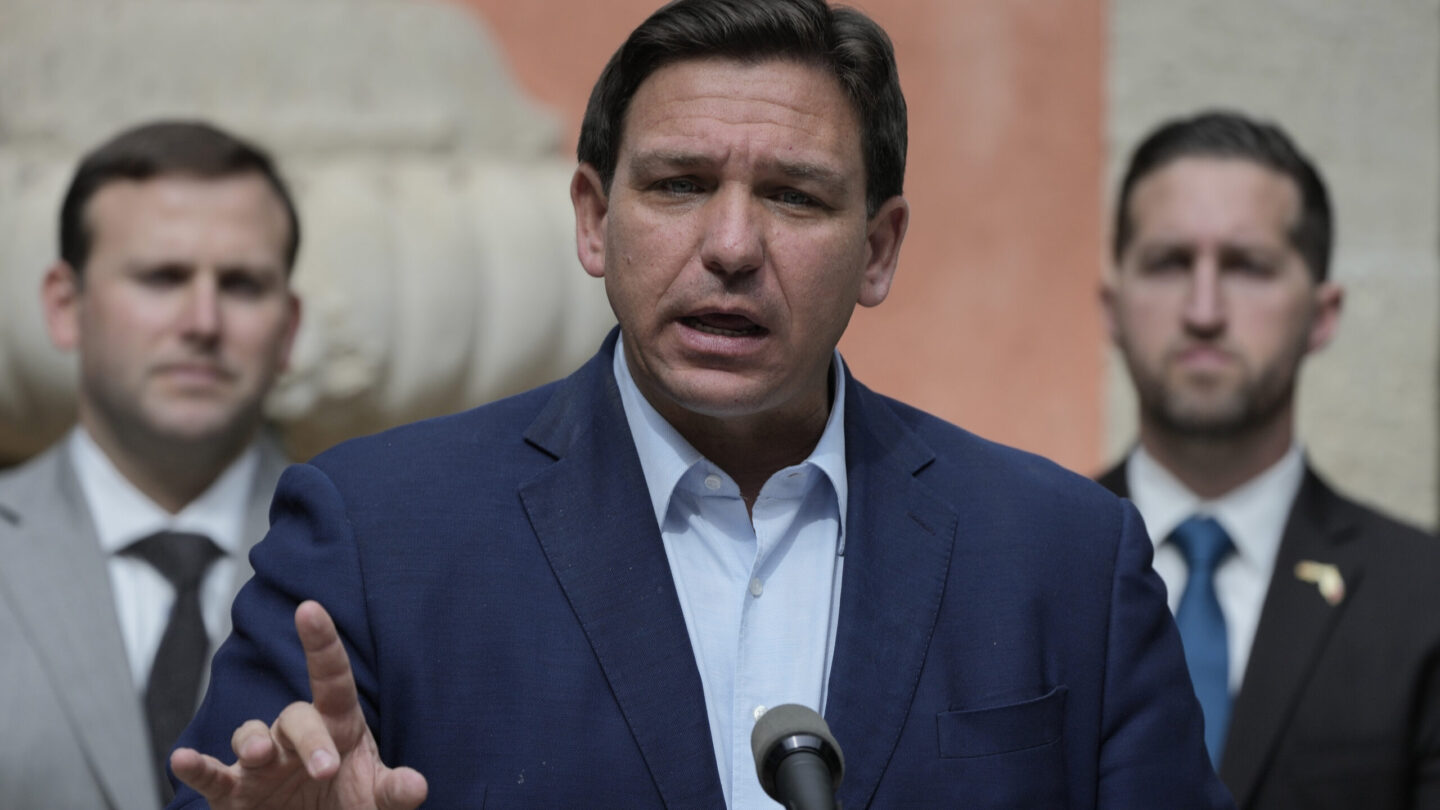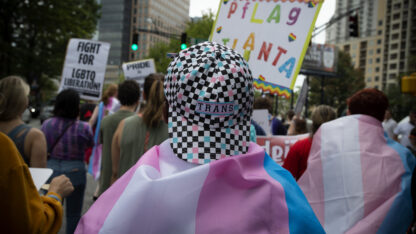Saying gender identity is real, a federal judge temporarily blocked portions of a new Florida law that bans transgender minors from receiving puberty blockers, ruling Tuesday that the state has no rational basis for denying patients treatment.
Judge Robert Hinkle issued a preliminary injunction, saying three transgender children can continue receiving treatment. The lawsuit challenges the law Republican Gov. Ron DeSantis signed shortly before he announced a run for president.
“The elephant in the room should be noted at the outset. Gender identity is real. The record makes this clear,” Hinkle said, adding that even a witness for the state agreed.
Transgender medical treatment for minors is increasingly under attack in many states and has been subject to restrictions or outright bans. But it has been available in the United States for more than a decade and is endorsed by major medical associations.
Hinkle’s ruling was narrowly focused on the three children whose parents brought the suit.
Attention on the new law has focused on language involving minors, and Hinkle’s ruling focuses on the use of GnRH agonists, known as puberty blockers, and cross-sex hormones. The lawsuit doesn’t address other language that makes it difficult to near impossible for adults to receive or continue gender-affirming care.
Hinkle said people who mistakenly believe gender identity is a choice also “tend to disapprove all things transgender and so oppose medical care that supports a person’s transgender existence.”
Banning treatment for minors ignores risks patients might face, Hinkle said.
Research suggests that transgender youth and adults are prone to stress, depression and suicidal thoughts, and the evidence is mixed on whether treatment with hormones or surgery resolves those issues.
Even ahead of contemplating medical treatment, experts agree, allowing children to express their gender in a way that matches their identity is beneficial, such as letting children assigned male at birth wear clothing or hairstyles usually associated with girls, if that is their wish.
“There are risks attendant to not using these treatments, including the risk — in some instances, the near certainty — of anxiety and depression and even suicidal ideation. The challenged statute ignores the benefits that many patients realize from these treatments and the substantial risk posed by foregoing the treatments,” Hinkle said.
He also noted that hormone treatments and puberty blockers are often used to treat non-transgender children for other conditions, so the law makes their use legal for some, but not for others.
The three children in the lawsuit will “suffer irreparable harm” if they cannot begin puberty blockers, Hinkle said.
“The treatment will affect the patients themselves, nobody else, and will cause the defendants no harm,” Hinkle said.
The governor’s office didn’t immediately reply to an email seeking comment.








